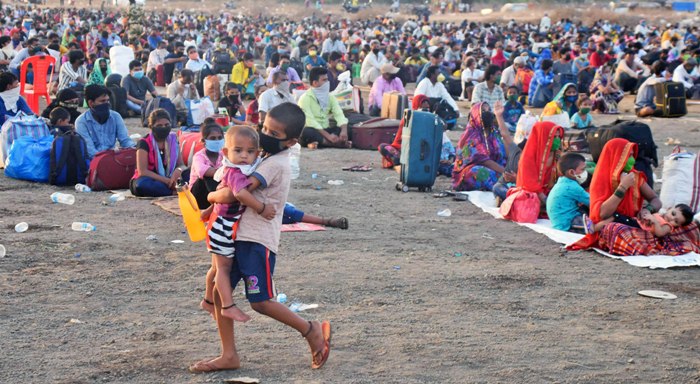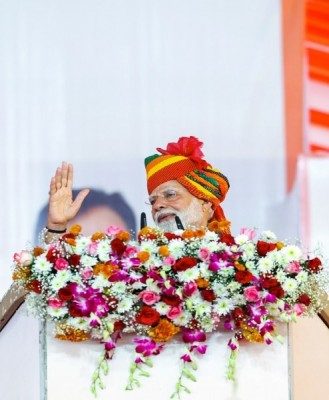 India population
India population
India to surpass China as the world’s most populous country in 2023: UN report
New Delhi/IBNS: India is set to surpass China as the world's most populous country in 2023, according to a report by the United Nations on Monday.
The global human population has been estimated to reach 8.0 billion in mid-November 2022 with an addition of 1 billion people since 2010 and 2 billion since 1998. Thereafter, it is estimated that more than 70 years will be required for the global population to double again, rising to over 10 billion by 2059, the report said.
The world’s two most populous regions in 2022 were Eastern and South-Eastern Asia, with 2.3 billion people, representing 29 per cent of the global population, and Central and Southern Asia, with 2.1 billion (26 per cent).
China and India accounted for the largest populations in these regions, with more than 1.4 billion each in 2022.
India's population was 1.21 billion as per the 2011 domestic census, which is conducted once a decade. The government had deferred the 2021 census owing to the COVID-19 pandemic.
 Image by: Suryoday Mandal
Image by: Suryoday Mandal
In 2020, and for the first time since 1950, the rate of population growth fell below 1 per cent per year and it is projected to continue to slow in the next few decades and through the end of this century. The global population could grow to around 8.5 billion in 2030, and add 1.18 billion in the following two decades, reaching 9.7 billion in 2050, stated the UN report.
More than half of the projected increase in the global population between 2022 and 2050 is expected to be concentrated in just eight countries: the Democratic Republic of the Congo, Egypt, Ethiopia, India, Nigeria, Pakistan, the Philippines and the United Republic of Tanzania.
Central and Southern Asia is expected to become the most populous region in the world by 2037 as the population of Eastern and South-Eastern Asia could start declining by the mid-2030s as per the report.
Countries of sub-Saharan Africa are expected to contribute more than half of the increase anticipated through 2050.
However, the population of 61 countries is projected to decrease by 1% or more between 2022 and 2050, driven by a fall in fertility.
In countries with at least half a million population, the largest relative reductions in population size over that period, with losses of 20 per cent or more, are expected to take place in Bulgaria, Latvia, Lithuania, Serbia and Ukraine. China is expected to experience an absolute decline in its population as early as 2023.
Globally, the world counts slightly more men (50.3 per cent) than women (49.7 per cent) in 2022. This figure is projected to slowly invert over the course of the century. By 2050, it is expected that the number of women will equal the number of men.
Support Our Journalism
We cannot do without you.. your contribution supports unbiased journalism
IBNS is not driven by any ism- not wokeism, not racism, not skewed secularism, not hyper right-wing or left liberal ideals, nor by any hardline religious beliefs or hyper nationalism. We want to serve you good old objective news, as they are. We do not judge or preach. We let people decide for themselves. We only try to present factual and well-sourced news.







